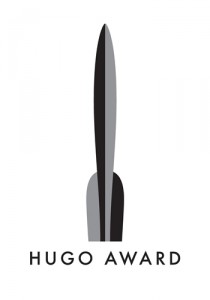 Over at Tor.com, Jo Walton, a World Fantasy Award-nominated author, is taking an expansive look at the Hugo Awards, one of the most respected and revered trophies in the Literature world. She’ll be covering the award’s history year-by-year, breaking down the nominees, the winners and who might have been left undeservedly in the dust.
Over at Tor.com, Jo Walton, a World Fantasy Award-nominated author, is taking an expansive look at the Hugo Awards, one of the most respected and revered trophies in the Literature world. She’ll be covering the award’s history year-by-year, breaking down the nominees, the winners and who might have been left undeservedly in the dust.
Walton explains the motive behind the series of articles.
The Hugo is undoubtedly science fiction’s premier award, and it’s entirely fan-administered and fan-voted. It was first awarded in 1953, and has been awarded annually without a break since 1955. I’ve been told that it’s the only award that actually affects sales of a book. The winner gets a rocketship statuette and the inscribed bases are different every year.
I’m going to be talking about books, and sometimes stories, and only occasionally looking at the other categories. I’ll mention when new categories were introduced. I may mention fanzines and fan writers from time to time. I shall look at the Campbell nominees. I am a reader. I’m really not qualified to say anything about the visual categories. (In 1958, “No Award” won for Dramatic Presentation, and I think this excellent precedent could have been followed much more often since.) I shall be using the lists at Locus online, an invaluable resource, and at the official Hugo Awards site.
I haven’t, of course, read every single book nominated for the Hugos since 1953. (What have I been doing with my time?) If I haven’t read it, I shall say so, and I shall say why. Otherwise I shall talk briefly about the books and their place in the field. If I’m inspired to re-read a book and talk about it in detail, I’ll do that separately. I’ll be very interested to hear other opinions and especially suggestions for other things of the year that should have been nominated. My views are, of course, my views, but I’ll be interested to see if there is a consensus—my feeling is that for most years there is, and also that the Hugo nominators are often right, but there are occasionally some startling omissions and some live controversies out there.
So far, she’s taken a look at 1953, the very first year the Hugo Award was presented. Here’s what she had to say about 1953’s best novel:
Between 1953 and 1958 the Hugo Awards were fairly disorganized. The categories weren’t fixed, and there was only one round of voting—no nominees were announced. The 1953 first ever Hugo awards were presented at Philcon II, in Philadelphia.
The winning novel was Alfred Bester’s The Demolished Man. (Review here.) It’s not in print, but it was recently, in Gollancz’s Science Fiction Masterworks series, and it’s never been hard to find. I read it when I was reading my way through science fiction in alphabetical order when I was twelve. It’s an examination of how it might be possible to commit a murder in a world of telepaths where not even your thoughts are private. There are some aspects of it that seem dated, but I’d say it was an enduring classic, and a worthy winner.
If you’re interested in gaining a better understanding and a deeper insight into the history of the Science Fiction and Fantasy genres, Walton’s series of articles can’t be missed. Though there’re a lot of great novels being released today, the genre’s got a history too deep to ignore and this is the perfect way to discover some of the gems lost to history.

[…] This post was mentioned on Twitter by SF Signal (John D.), Aidan Moher. Aidan Moher said: New Blog Post – Jo Walton tackles the Hugo Awards over at @tordotcom: http://bit.ly/bCpDdn […]
I’m really not qualified to say anything about the visual categories. (In 1958, “No Award” won for Dramatic Presentation, and I think this excellent precedent could have been followed much more often since.)
I’m really not qualified to say anything about the visual categories but I’ll go ahead an disparage them anyway?
[…] A dribble of ink: An Aside | Jo Walton tackles the Hugo Awards […]